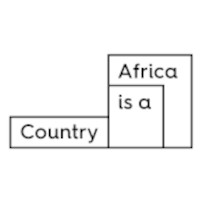Zimbabwean founding father, Ndabaningi Sithole, has largely been edited out of the country’s history. But thanks to the tremendous archive of writing Sithole left behind, we can edit him back in.
Downtown Bulawayo, Zimbabwe. Image credit Sputniktilt via Wikimedia Commons CC BY-SA 4.0
In the fall of 2019, I visited the Library of Congress in Washington, DC with a specific mission. At the time, I was researching and interested in the idea of encountering Ndabaningi Sithole, one of the founders of the modern state of Zimbabwe, at his peak. For hours I watched videos of Sithole as a young politician, and I was there to witness the unfiltered evolution of a political figure who remains at the margins, unrecognized and uncelebrated. I listened to radio interviews of Sithole articulating the roots of the liberation struggle. The myth of Robert Mugabe as the most eloquent political actor in Zimbabwe is just that.
Sithole, who died in 2000, did not have the benefit of Google. He was frozen in time, at the twilight of his life. For a long time on YouTube, the only clips of Sithole were of an aging man, hobbling to court, fighting for his life after being accused of treason and attempting to kill his rival, Mugabe. The accusations were a shoddy plot by the central intelligence office to ensure that Sithole spent his final years fighting for his freedom. As the journalist Bill Saidi reported in The Daily News: “The plot was so incredible, it would have qualified for a hilarious spoof: ‘The Gang That Couldn’t Shoot Straight.’” The political tensions between Mugabe and Sithole, it was clear then, did not end with the war, as this trial demonstrated.
The Sithole I encountered in old black and white videos was as eloquent, confident and appeared like a future black leader of independent Zimbabwe. He was a charismatic figure with a preacher’s sweeping rhetorical gifts. Unfortunately, this visual archive remains hidden in an American basement and a young generation of Zimbabweans don’t have the benefit of seeing and learning from one of their national liberation heroes. Because Sithole has been reduced to a “minor” historical figure, there has been no interest in opening this archive to a broader public.
The story of Ndabaningi Sithole has been very much dependent upon his own writings, both published and unpublished, but this material has never been easily accessible. His books, published since 1956, were banned in then Rhodesia. And by the time independence arrived in 1980, Sithole had been displaced from any form of moral or political leadership. There was no desire from the new government to repatriate his books or republish them for the benefit of a new generation of Zimbabweans. Sithole’s books, now out of print, are available in libraries and archives around the world, yet not in his home country.
In order to write the book Ndabaningi Sithole: A Forgotten Founding Father, I had to seek the subject in basements, summon books and documents hidden in off-site storage facilities. Sometimes, I had to speak to people who knew him personally, such as his family or other political actors. I also had conversations with historians and archivists who offered their opinions about Sithole and nationalist history in Zimbabwe. I made a trip to Chipinge where Sithole is buried, and to Matabeleland, a region that had a profound influence on his writing, all in order to make sense of a political and intellectual figure who has remained submerged in the past. And my parents, both retired, were more than supportive in the research of the book. They were my resident librarians, keepers of my Zimbabwean library, and with short notice scanned newspaper articles and book chapters, or bought books in aid of my work.
At some point, work on the book stalled. When I first approached the HSRC Press (who published the book as part of the Voices of Liberation series) there was no urgency to do this project. Frustrated, I decided to write a short piece on Sithole for The Conversation as a way to test out this theory, but also to investigate how he would be read through the prisms of contemporary Zimbabwean politics. Three weeks after my article was published, president Emmerson Mnangagwa used the occasion of heroes day to posthumously declare Sithole a national hero among others who had been shunned by the previous regime. This was no coincidence. But it signaled a radical break from Mugabeism by the new dispensation. The discourse about heroes and heroism had been opened up. I knew then that the impulse to bring to surface Sithole’s writings was urgent and timely.
The coup d’etat of November 2017 empowered young people in Zimbabwe to ask questions about their history. Though Sithole is mostly known as a politician, he was the founding president of ZANU in its first decade (1964-1974), and the inaugural commander of the second Chimurenga but was later replaced by his once secretary general, Mugabe. Indeed, Sithole is fascinating and confounding. He was an ordained minister and a teacher. But perhaps, his most important contribution to Zimbabwe was through his writings. He was the author of poetry, polemics, and fiction.
In the 1960s and 1970s, Sithole was one of the most prolific black writers in Rhodesia alongside Stanlake Samkange, Lawrence Vambe, and others. His books were published in Dar es Salaam, Cape Town, London, Nairobi, New York, and various other locations. In large part owing to the success of African Nationalism (published in 1959), Sithole was the most translated Zimbabwean author of his time. His book was translated into more than a dozen languages including Arabic, French, German, Italian, Japanese, Spanish, and Swedish.
Despite this success, Sithole was not read as a writer but as a politician. Yet, he wanted politics to have a literary quality. He had a high regard for language, which he believed was an instrument for tearing people out of their ordinary perceptions and forcing them to see and feel. He knew that history does not exist except as it is composed. However, Sithole also wrote as a teacher; his books are didactic, with a mission to educate. It is ironic that most of his books remain unavailable in Zimbabwean libraries and bookshops.
Sithole published the first Ndebele novel in Zimbabwe, AmaNdebele ka Mzilikazi in 1956, which was republished a year later as Umvukela wamaNdebele. Sithole also wrote the first novel in English serialized in African Parade between 1959 and 1961. And his most famous book, African Nationalism, was the first autobiography by a black political figure of his generation. In that sense he was a trailblazer. Sithole also knew that fighting colonialism was an intellectual battle.
Sithole’s tenure as leader of ZANU was mostly from prison. It was a treacherous time. Most of the black political leaders in Southern Rhodesia had been rounded up, detained, killed, or forced into exile. While in detention, Sithole was never inactive. He directed ZANU’s insurgent activities from his prison cell and used this downtime to further develop his thoughts on the philosophy of the liberation struggle. Sympathetic prison guards and young members of the nationalist movement smuggled his manuscripts out of prison to be later published overseas. In the University of Oxford Press archives more manuscripts are mentioned to have been submitted for consideration, but only a small fraction of these were published.
As if he knew history would not be kind to him, Sithole coordinated the liberation struggle through the barrel of the pen. His writing is preemptive; he writes himself into history, not only as a chronicler of the liberation struggle in real-time, but also as an archivist for the future. And it is the archive that informs the basis of this book. It was only possible because of the archive that Sithole left behind. It is important to examine Sithole’s biographical and intellectual accounts and historicize him in relation to the complex social and political history of Zimbabwe.
Few works have critically engaged with Ndabaningi Sithole’s writings; he is just a footnote in published historical narratives. And yet, to deny his contributions to the struggle undermines the struggle itself.






